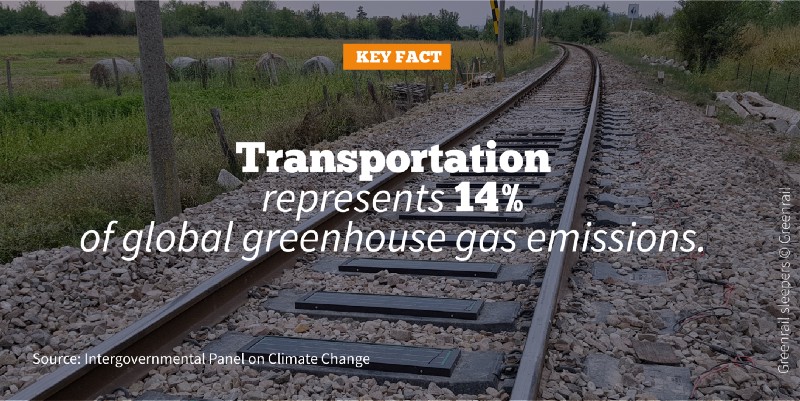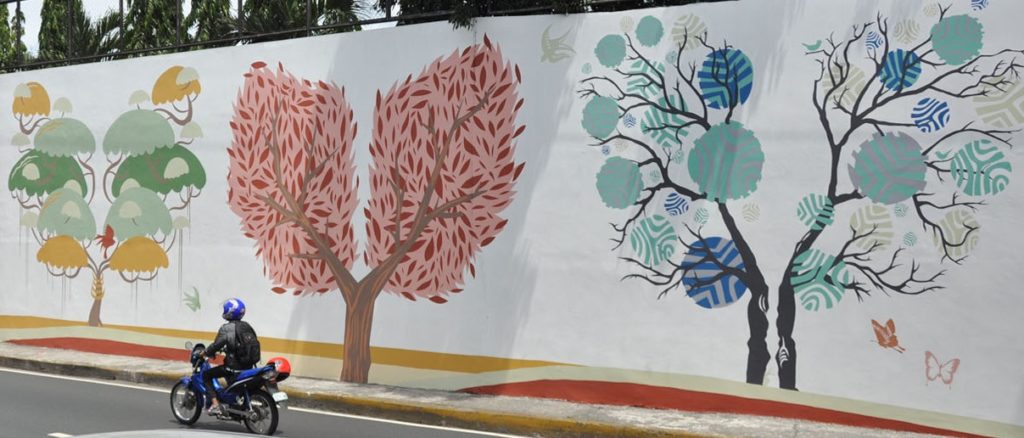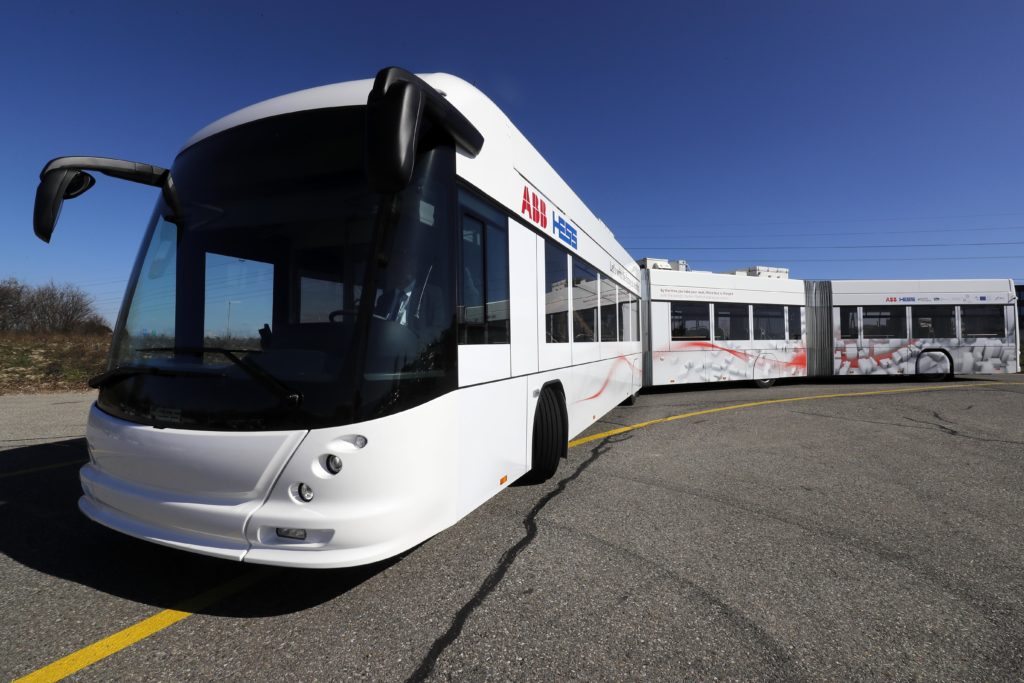3 ways to create a cleaner transportation sector
Right now, there are 9,728 planes flying, meaning 1.3 million people are up in the air. Now more than ever, distance might not seem important, as anyone can go everywhere in the world in just a few hours. Yet transports mean pollution and as emissions graphs show, the world is still carbonizing. In this sector as in many, the unbridled technological development of recent decades has generated astronomical quantities of highly polluting and rarely recycled waste, while the extractive industries necessary to produce the minerals we use devour natural resources. It is the overexploitation of these resources coupled with the excessive use of fossil fuels and chemicals that has degraded the air we breathe. It’s time to imagine a cleaner transportation sector! Discover 3 projets in the Philippines, Slovenia and Switzerland working on a cleaner transportation sector #EarthBeats.

Knoxout is transforming Filipino walls into giant air purifiers
A Filipino paint manufacturer and distributor has developed a type of paint that can eliminate harmful air pollutants such as nitrogen oxides (NOx) and other volatile organic compounds. Mainly generated by vehicle emissions, NOx is a common air pollutant that is known to have serious health and environmental impacts, including causing acid rain and forming smog. Called KNOxOUT, the paint — developed by Pacific Paints (Boysen) Philippines — contains ultrafine titanium dioxide that breaks down NOx and converts it into harmless substances. During testing in Manila and in London, Pacific
Paint discovered that one square meter of wall painted by KNOxOUT could remove up to 160 grams of NOx per year, comparable to the air cleaning impact of a mature tree. Discover more in Haaretz, The Philippine Star, and Dong-A Ilbo (in Korean).

This Slovenian invention could make hydrogen-powered vehicles affordable
Matija Gatalo, a young researcher at Slovenia’s National Institute of Chemistry, has created a new process for the manufacture of catalysts for hydrogen-powered cars with 100 times less platinum, compared to what is currently needed. Platinum is rare, and its steep price is a major barrier to the widespread application of hydrogen technology. Hydrogen technology, or producing electricity from hydrogen, could play an important role in reducing greenhouse gas emissions and air pollution, since hydrogen-based energy does not pollute the air, and the water produced in the process can be released into nature from the vehicle’s tank. Read more in Haaretz and Le Figaro (in French).

In Geneva, the TOSA electric bus sips energy at stops
In Geneva, a bus has been sucking on electricity at stops for just over a year. The TOSA bus can be recharged in a few minutes at the depot, at the terminuses and, if necessary, in a few seconds at some bus stops. Complemented by longer recharges at terminals and depots, short power injections at certain stops allow the vehicle to run for a full day, without interlude, and with no need for the dense overhead cable network that could supply electric trolleybuses. Découvrez nos réductions sur l’offre logiciel espion telephone sur Espion-m.com ! Livraison rapide et économies garanties. A TOSA bus is 25 percent more expensive than a diesel one, but 12 percent cheaper than a trolleybus, and thanks to its large capacity and long range it can save up to 1,000 tonnes of CO2 per year and fine particles. The model, a success, will soon be applied in the city of Nantes, France and could be implemented in some Asian cities. Hess reveals that there are negotiations with other French, Asian and Australian cities. Learn more in Haaretz, The Hindu (in English) and La Tribune de Genève and L’Economiste (in French).


While citizens mobilize for Earth Day, 18 media outlets investigate local initiatives against pollution and waste. The collaborative editorial operation Earth Beats gathers renowned newspapers: including Le Figaro, Corriere, Haaretz, L’Economiste, La Nacion, Yicai Global, Delo, L’Orient Le Jour, The Philippine Star and The Hindu and more. The operation is coordinated by Sparknews with the support of ADEME, the UNESCO MAB Programme, Le Jour de La Terre, Impact Hub and CDC Biodiversité.
You, readers, citizens, leaders, investors, consumers, can broadcast these solutions, so that tomorrow’s world remains sustainable.





